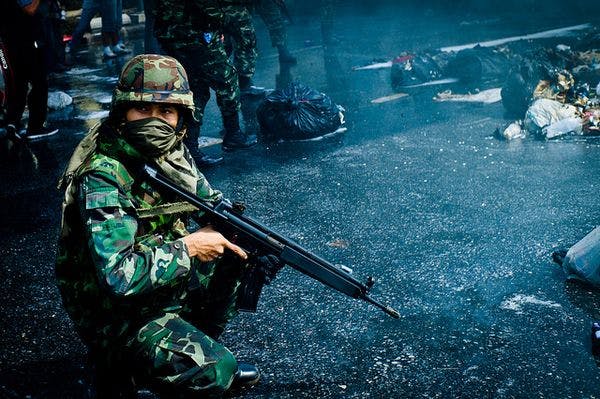Análisis de las políticas de drogas en Asia
En Asia, las políticas de drogas se utilizan para menoscabar los derechos humanos y silenciar las voces disidentes. Esta relación de rivalidad entre el Estado y la ciudadanía desplaza la responsabilidad del Estado de proteger a su población.
Más información, en inglés, está disponible abajo.
Suscríbase a las Alertas mensuales del IDPC para recibir información sobre cuestiones relacionadas con políticas sobre drogas.
Human rights advocates globally have been raising the alarm over diminishing civil society space, as an increasing number of governments are curbing dissent through the silencing of opposing voices, eliminating them from the public sphere. A recent report, Rights at Risk, issued by rights-monitoring groups, highlights how states have found support in religious intergovernmental bodies and religious-affiliated civil society actors. The report found that, in the last two decades, these “anti-rights” groups have formed strategic alliances and have co-opted human rights language to pursue a regressive agenda. Global policymaking spaces have become battle sites resulting in regressive, weakened UN resolutions.
Government constricting of the civil society space is most evident regarding freedom of expression, a recent example being Vietnam. Human Rights Watch recently documented attacks by “thugs” against rights bloggers and activists there. The attackers appear to be operating under the direction of, or with support from, government authorities. The report documented 36 such attacks that took place between January 2015 and April 2017. Given the Vietnamese government’s highly controlled state media, activists had turned to online platforms to express their concerns, but faced violent physical attacks as a result. The report calls on donor governments to request the Vietnamese government end attacks on rights activists.
In its pursuit to silence critics, Vietnam finds friends among its neighbors. The government of Thailand is reportedly exploring software that would allow the ruling military junta to monitor the online activity of its citizens. Thailand already has multiple laws under which rights activists and journalists have been harassed, arrested, and imprisoned. The government is attempting to push a cyber security bill, which has been criticized by experts who say it allows the government to grant unchecked access to its citizens’ privacy.
Keep up-to-date with drug policy developments by subscribing to the IDPC Monthly Alert.
Thumbnail: CC nullO
